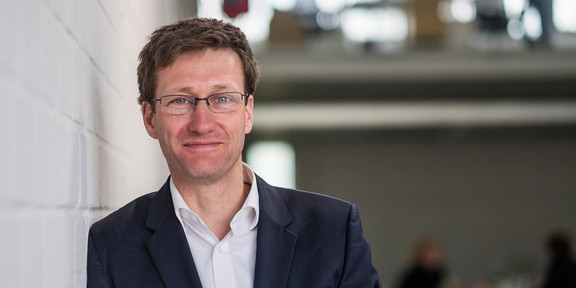News Archive

2025

2024

2023

2022

2021

2020
Driving social innovation for inclusion: launch of the citizen science project IncluScience at sfs.
- News
- Fakultät

Social innovation for Urban Resilience: Jürgen Howaldt at the European Social Economy Summit
In his presentation in the session “Social Innovation for Community Health Resilience under Climate Change” at the European Social Economy Summit (26 - 27 May 2021 | Digital Conference broadcasted from Mannheim) sfs-director Jürgen Howaldt shared his view on the role of social innovation to improve urban resilience to climate changes.
Jürgen Howaldt emphasized the crucial role of social innovation in addressing the great societal challenges. Alongside green and digital technologies, social innovations are the third pillar to make communities more resilient and sustainable. Like technological innovations, he argued, successful social innovations are based on numerous presuppositions and require appropriate infrastructures and resources. This includes a new role of public policy and government for creating suitable framework and support structures, the integration of the economy and civil society as well as supporting measures by science and universities.
The „European Social Economy Summit“ (#EUSES) is a digital conference jointly organized by the European Commission and the city of Mannheim, aiming to strengthen the social economy in Europe and contributing to the overall economic development, social inclusion, and digital transformation.
The presentation “Improving Urban Resilience to Climate Changes by Social Innovation: Actors, Processes and Solutions“ from Jürgen Howaldt is available here (PDF).
Videos from the conference (keynotes, speeches & discussions) can be watched in the #EUSES-Media Library.
What information do people with impairments need in order to have inclusive access to publicly accessible places such as train stations, cinemas or hotels? And how can citizen science research be made inclusive? These are the questions posed by the project "IncluScience - Disability Mainstreaming in Science and Practice", which has now been launched and is funded by the BMBF. The sfs researchers Dr Bastian Pelka, Daniel Krüger and Ann Christin Schulz are developing an inclusive citizen science toolbox.
Inclusive citizen science pursues the claim of participation of citizens and is thus not only seen as an opportunity for science, but also as an opportunity for more inclusion and self-determination of citizens. Against this background, the project IncluScience of the Sozialhelden e.V. (social heroes) (known through the inclusion activist Raul Krauthausen) and the Social Research Centre at TU Dortmund’s faculty of Social Sciences have come together in the IncluScience project to expand the well-known online barrier road map Weelmap.org with a citizen science approach on the one hand and to create a citizen science toolbox for inclusive citizen science on the other. IncluScience thus pursues the overarching goal of being a driver of social innovation for inclusion.
The project pursues the claim of inclusive citizen science by involving citizens from the orientation on challenges and the derivation of research questions to the design of methods and solutions and products. In particular, for the extension of Wheelmap.org - a free online street map with marked mobility barriers - to include certain types of places (verticals such as train stations, cinemas, restaurants), people with visual, hearing and mobility impairments as well as cognitive impairments are consistently involved as co-researchers at eye level.
Furthermore, IncluScience prepares the models and procedures generated in the development process of the verticals for the participation of citizens, especially for people with impairments, for other citizen science project projects. For this purpose, a citizen science toolbox for inclusive citizen science is being developed within the project, which is intended to contribute to strengthening the inclusivity of participatory citizen science for the transfer of knowledge even beyond the project duration.
Project leader Dr. Bastian Pelka: "With the IncluScience project, we want to contribute to improving the well-known Wheelmap on the one hand, but on the other hand also use this process to look at the opportunities and possibilities of citizen science for inclusion from a sociological meta-perspective and to promote it."




